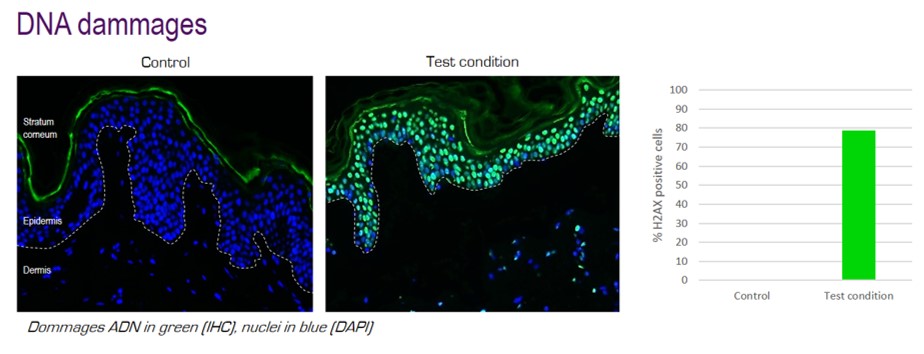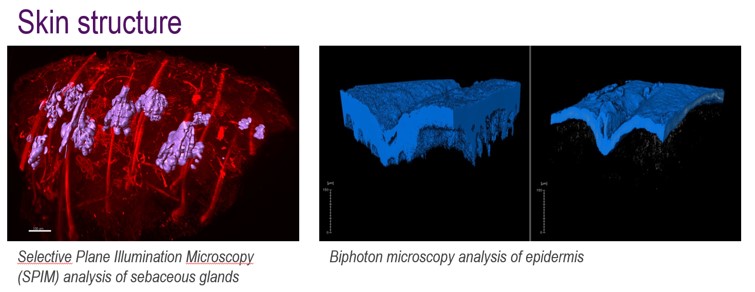Syntivia technology complements cosmetic safety assessment
Hi-tech tools for additional safety data on cosmetics
As an expert in cosmetic claims substantiation, Syntivia cultivates innovation and uses high-tech tools to scientifically demonstrate the activity of tested products based on reliable data and high-quality imaging. Syntivia’s technology also provides complementary data when it comes to assessing the safety of cosmetic products.
Cosmetogenomic studies to predict and monitor harmful effects
Cosmetogenomics is the science that studies how cosmetic actives interact with a cell’s genes. More specifically, the technique allows to measure a specific gene’s response to cosmetic treatment. The science allows the selection of specific genes that are implicated in skin biology and may have a specific effect on:
- Barrier function,
- Moisturizing,
- Dermis/epidermis adhesion,
- Matrix renewal,
- Longevity,
- Pigmentation
- Inflammation
- Antioxidant defenses…

Cosmetogenomic studies can use any type of skin model. The technology doesn’t only allow to screen a cosmetic active or validate its activity, it can also be used to analyse metabolic pathways. As a consequence, cosmetogenomic studies may be used as a predictive tool to detect potential harmful effects for a specific product. Products or active ingredients that could potentially alter the genes that inhibit skin barrier function and affect the stratum corneum, for example, can be detected and eliminated. Cosmetogenomic studies also provide new monitoring opportunities for products that strongly activate the inflammation genes or alter the genes that are implicated in matrix structure or degradation.
In-depth skin physiology studies to highlight toxic effects
Cosmetics are designed to have a positive effect on human skin physiology, such as better hydration, increased elasticity, wrinkle reduction… In-depth skin physiology studies allow to visualise the skin’s response to a specific product or cosmetic active on a microscopic level. The physiological response induced by gene expression, can be analyzed in various ways, such as protein analyses or by studying the different layers and appendices of the skin.
In-depth studies of skin physiology can also highlight the toxic effects of products on the skin, as they will activate inflammation. Syntivia uses a wide range of high-tech tools to study both markers that are present within the skin as well as in-depth skin structure. Below you’ll find a few examples of potential study results.
Claire Leduc PhD., Syntivia’s Biology and Marketing Manager, recently presented Syntivia’s technology at the COSMED Association’s Technology Day in Toulouse. The event was dedicated to ” News and Harmonization of the safety assessment practices for cosmetic ingredients and products “
For more information on our technologies or study protocols for cosmetic ingredients and product safety assessment, don’t hesitate to contact us.




